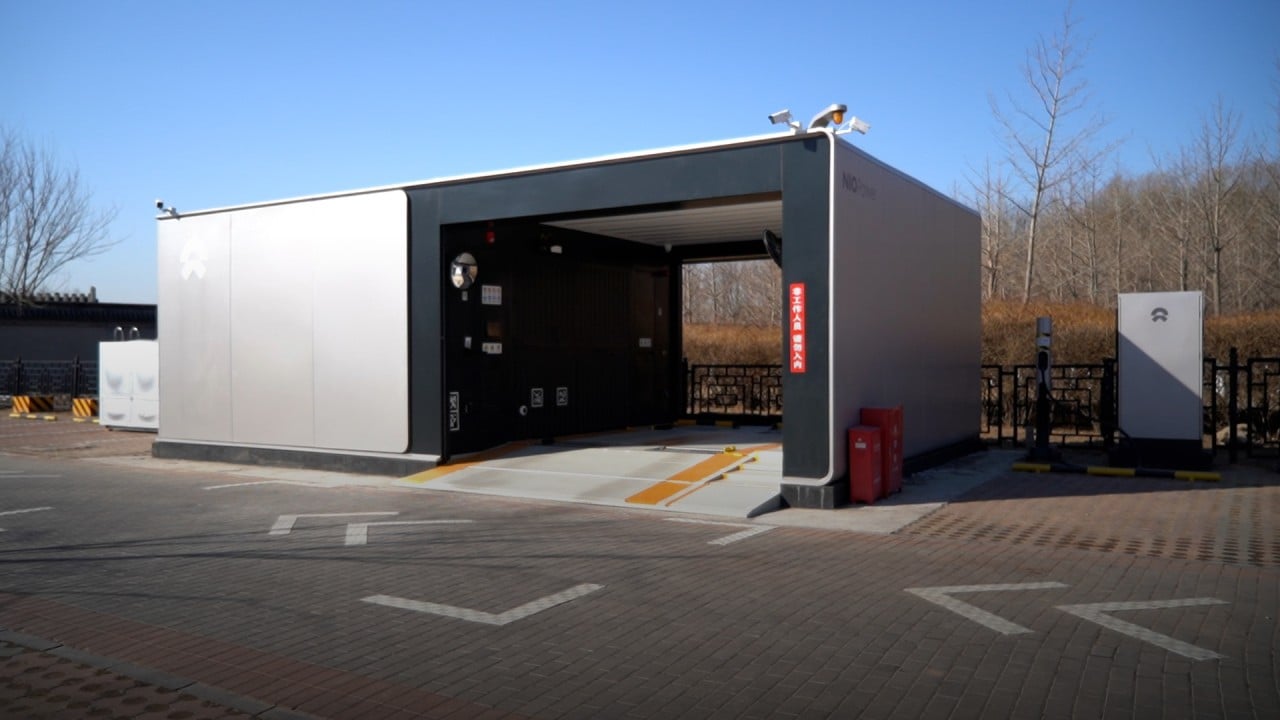
Electric cars: petroleum giant Shell aims to open Hong Kong’s first service station that will also offer EV charging facilities
- New facility at airport’s cargo terminal will feature four EV charging points and 16 refuelling positions, and will open by June 30
- Shell has a ‘short-term’ goal of providing more than 300 EV charging points in Hong Kong, executive says
The new facility at Hong Kong International Airport’s cargo terminal, which was unveiled on Tuesday, will be Shell Hong Kong’s biggest service station in the city. Spanning over 5,000 square metres, it will feature four EV charging points and 16 refuelling positions, and will be pressed into service by June 30.

Shell said in December that it had become the first petroleum firm to offer EV charging facilities in the city with the opening of a charging site in Fanling. The company currently operates 41 service stations in Hong Kong.
Shell, which is the world’s largest fuel retailer with about 46,000 service stations in almost 80 countries, said it has a “short-term” goal of providing more than 300 EV charging points in Hong Kong. It also aims to grow its global EV charging network to more than 500,000 charging points by 2025, including those on its own sites and those at third-party locations.
The new station at Hong Kong’s airport showed Shell’s commitment to the city’s decarbonisation journey, said Emily Leung, general manager of mobility at Shell Hong Kong. “We will continue to work with the government and other stakeholders to realise the city’s goal of net-zero carbon emissions by continuing to grow our EV charging network,” she said in the statement.
This policy support forms part of the city’s efforts to become carbon-neutral by 2050 and fight climate change. The city also wants to eliminate coal-fired power generation and for renewable energy to contribute up to 10 per cent of its total electricity output by 2035.
The government last year set a target for the city to have more than 150,000 private charging facilities and more than 5,000 public ones by 2025. Hong Kong currently has about 4,500 charging points.
In October 2020, it launched a HK$2 billion (US$803 million) scheme to subsidise charging infrastructure installation for more than 60,000 parking spaces in existing private residential buildings. An additional HK$1.5 billion of support was announced in this year’s budget.


